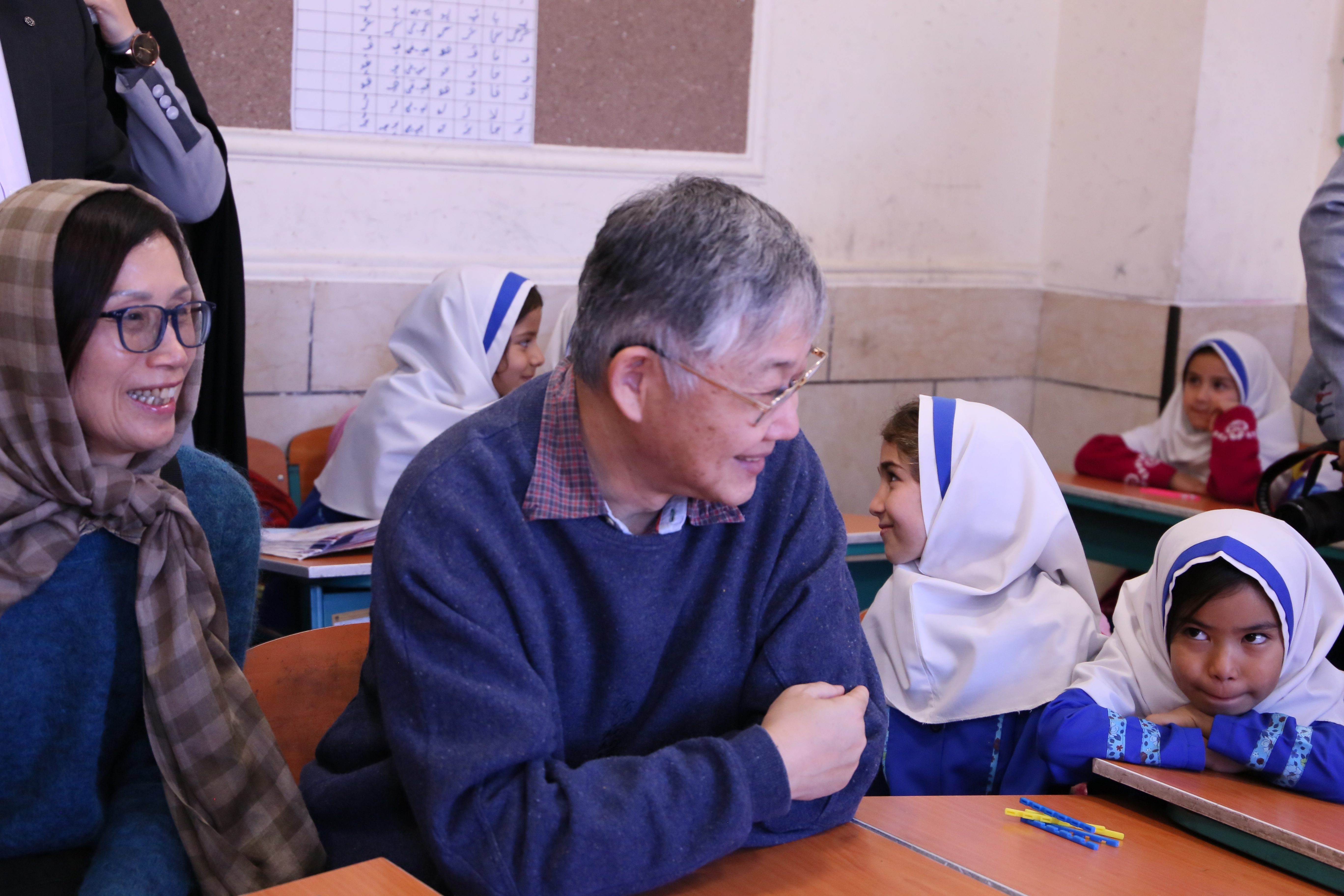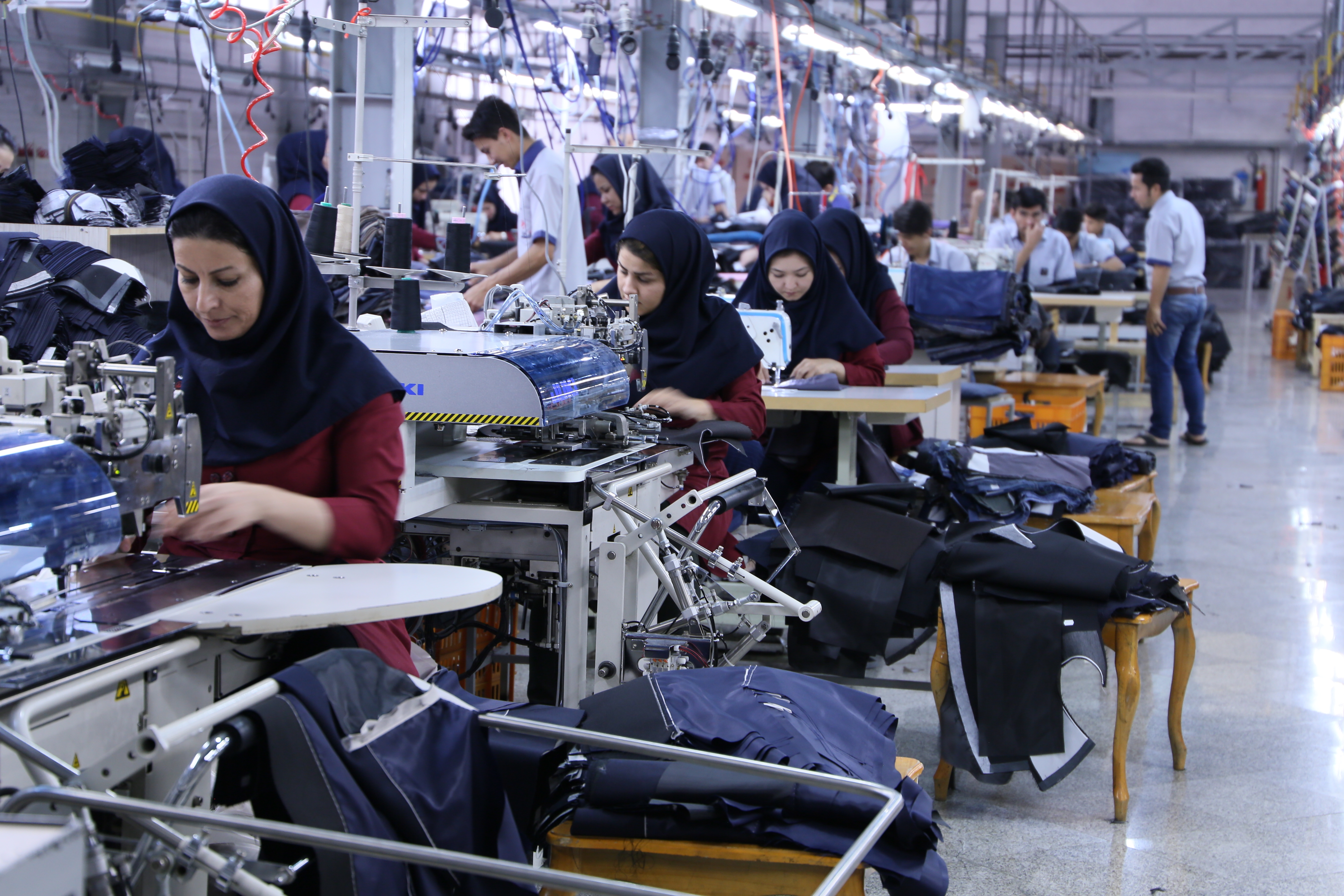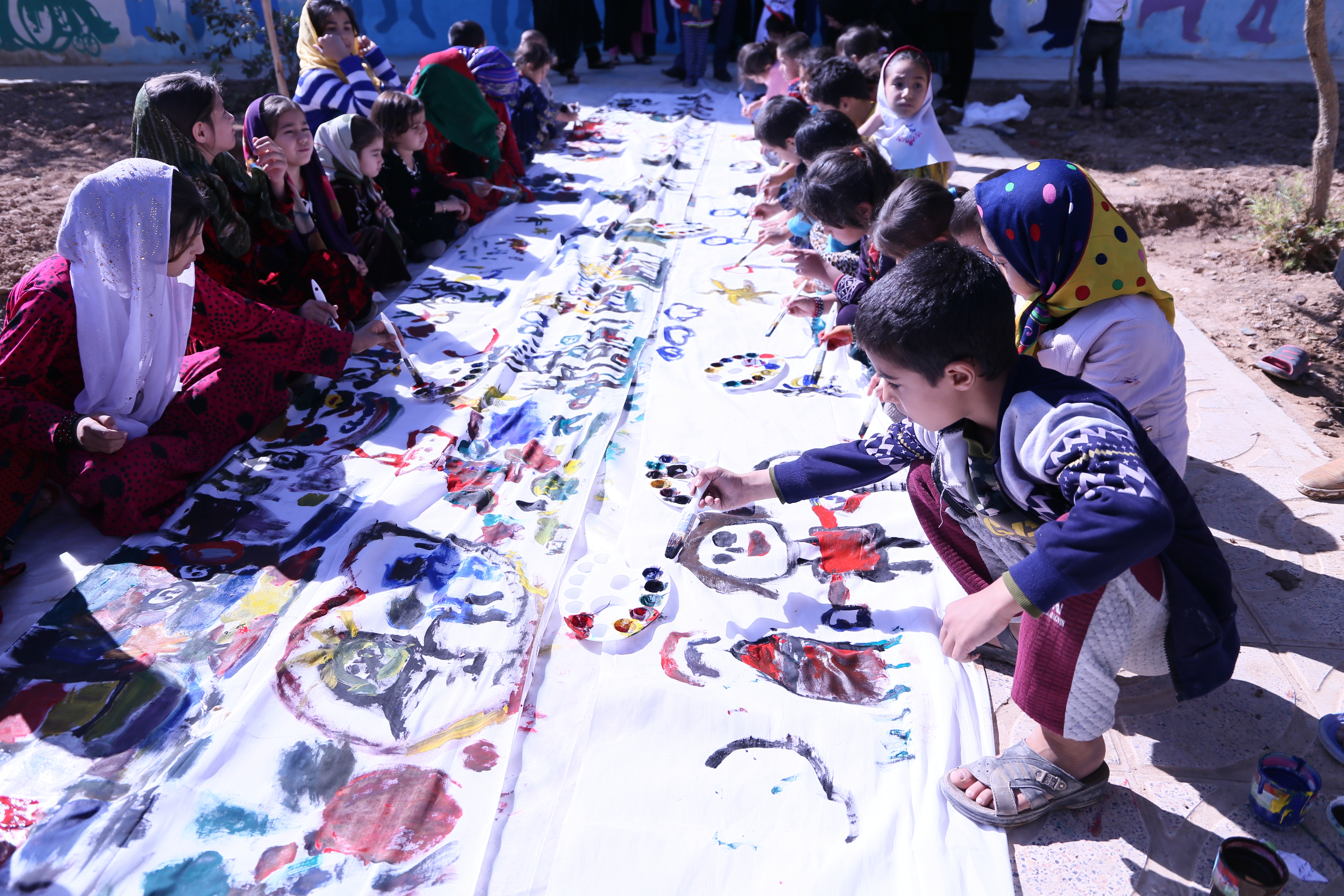Shih Wing Ching Visits Refugees in Iran with UNHCR – UNHCR Iran Mission Media Gathering
UNHCR is honoured to have received many years of generous support and contribution from the Founder of Shih Wing Ching Foundation, Mr. Shih Wing Ching. In November 2018, UNHCR arranged a visiting tour to Iran for Mr. Shih together with his wife. On 13th December 2018, Mr. Shih also attended the UNHCR Iran mission media gathering together with Mr. Sivanka Dhanapala, Representative of UNHCR China, Ms. Vivian Tan, the Deputy Representative of UNHCR China and Ms. Bianca Lam, Head of Private Sector Partnerships (China). Together they shared their experience in Iran and the insights into the lives of the refugees in Iran, including topics of education, livelihoods, and inclusiveness.
Iran is a host to one of the largest and most protracted urban refugee situations in the world and has provided asylum to refugees for nearly 40 years. According to Government statistics, over 951,000 Afghans are counted as registered refugees, with an addition of 450,000 Afghans holding Afghan passport with Iranian visas. Meanwhile, it is estimated that around 1.5 to 2 million undocumented Afghans continued to reside in the country.
UNHCR, the UN Refugee Agency, has maintained an uninterrupted presence in Iran for 34 years, mainly in the areas of livelihood, education and community inclusion. During the five-day trip, Mr. Shih visited four cities, and the visitors were taught about the interactive effort made by UNHCR with local authorities and stakeholders, as well as the support offered.

Mr. Shih Wing Ching and his wife attended class with girls in Iran.
Education is crucial to refugees’ future, therefore UNHCR Iran’s priorities in education focus is on access to quality primary and secondary education, bringing hope to refugee families and their next generation. In 2015, Iran’s Supreme Leader issued a decree to the Ministry of Education to allow all Afghan children of school age, regardless of documentation status, to attend primary and secondary school education. At the moment, nearly 420,000 Afghan and Iraqi children are enrolled in the 2017/18 school year. In close collaboration with Bureau for Aliens and Foreign Immigrants Affairs (BAFIA) and the Ministry of Education (MoE), UNHCR has ensured school enrollment is increased, and is supporting the government through construction of co-funded schools, benefiting both refugees and host communities in areas with high refugee population. In view of this, UNHCR also takes part in community work to help educate conservative parents on why their daughters should receive an education and to attend school.
The tour visited Amir Kabir School in Shiraz which is co-funded by UNHCR, BAFIA and MoE, where the visitors observed a call and interacted with the pupils. Mr. Shih said, “School classes here focus on interactive elements. I am delighted to see the smile on those young ladies’ faces, and their will to participate in lessons. We visited a primary school class, and it was clear that the girls there were thrilled to receive an education, knowing that the opportunity is rare in Afghan.”
On a wider context, UNHCR identifies the importance of education regardless of age. They have in place a tripartite agreement with the Literacy Movement Organization (LMO), enabling adults and over-school-age refugees to participate literacy training courses; this has improved the literacy rate from 6% in 1979 to 67% in 2018.

Garment factory supported by Revolving Fund Project provides employment opportunities for refugees.
Local refugees’ limited skillsets and limited capital access has contributed to the constriction of formal employment options. To help improve this, UNHCR in partnership with the Technical and Vocational Training Organization (TVTO) and the Bureau for Foreign Immigrants’ Affair (BAFIA), offers vocational training courses to refugees, such as tailoring, air-conditioner repairing, computer and information technology courses, with the ambition to facilitate better livelihood opportunities. These training courses not only help enhance refugees’ skills and self-reliance, but also help them to establish their own values.
The representatives from Hong Kong visited a vocational training center in Bushehr, a southern city in Iran. During the visit, the representatives met some of the refugee trainees, such as Banafshir, a 46-year-old mother of two who recently started learning how to make mosaic art pieces. She explained to them that beyond mastering working skills, she also felt in control financially which had overall improved her self-esteem.
UNHCR piloted the Revolving Fund Project in partnership with BAFIA, to support refugees from Esfahan with a small business loan to facilitate their start-ups and business. The project has helped increase employment rates by enabling further employment of refugees. The project also indirectly impacts the life of beneficiaries as family members of those newly employed refugees. The representatives visited Arshak Garment Factory which came about with support from the Revolving Fund Project. 45-year-old owner Alijan Jafari fled to Iran from Afghan when he was 10 years old and has been in the garment industry for many years. The factory has hired over 300 Afghan refugees and locals, including 19-year-old Sakaneh who is the sole breadwinner of her family of seven following her father’s death. After the trauma happened, Sakaneh and her family received monetary support from UNHCR and they helped her by referring her for work with the factory.
Mr. Shih bought a blazer during the factory visit and he said, “this factory visit allowed me to take a step closer to the assistance provided by UNHCR to maintain refugees’ income and livelihood. This mode of work enables refugees to achieve security, responsibility and dignity.”

Refugees and local children join an activity hosted by UNHCR.
Coming up to 40 years, Iran has provided asylum to refugees, and during that time UNHCR has been dedicated to promoting community inclusion at the host communities to encourage refugees and locals to live harmoniously.
After arriving in the neighborhood of Kooshk-e Meidan in Shiraz, the tour visited a children’s playground built by UNHCR, and witnessed the mural painting co-created by locals and Afghan refugees with a goal of building mutual trust. Similar community-based activities had been arranged, featuring initiatives ranging from home-gardening to community-led ‘clean-up’ days in neighbourhoods with litter problems.
Central to these activities is the promotion of peaceful existence and strengthening of ties between refugee and host communities, with the objectives of raising self-awareness and empowering refugee communities with the knowledge and skills required to lead healthy and fruitful lives. The array of community inclusion activities have directly benefited the lives of 12,000 individuals and 32,000 indirectly, with the majority being women and children.
Mr. Shih spoke with a disabled refugee selling wooden handicrafts during this neighborhood visit to Kooshk-e Meidan where he said, “a neighborhood full of sense of belonging is what refugees need. These wide range of policies have brought people together and have made this community cohesive.”
As the trip came to its end, Mr. Shih reflected, “what surprised me most is how open-minded the Iran government is to providing assistance to refugees. They offer educational, medical and social services which is the same high quality that locals receive. This inclusive mindset has impressed me very much. This whole experience has inspired me to talk about refugee issues whilst I am in Hong Kong to improve awareness amongst the general public. I also intend to learn more about the great work UNHCR is doing around the world.”
About UNHCR:
The Office of the United Nations High Commissioner for Refugees (UNHCR) was established on 14 December 1950 by the United Nations General Assembly. The agency is mandated to lead and coordinate international action to protect refugees and resolve refugee issues. It strives to ensure that everyone has the right to seek asylum and find safe refuge in another state, with the option to voluntarily return home when conditions are conducive for return, integrate locally or resettle to a third country. UNHCR has twice won the Nobel Peace Prize, in 1954 for its ground-breaking work in helping the refugees of Europe, and in 1981 for its worldwide assistance to refugees.
